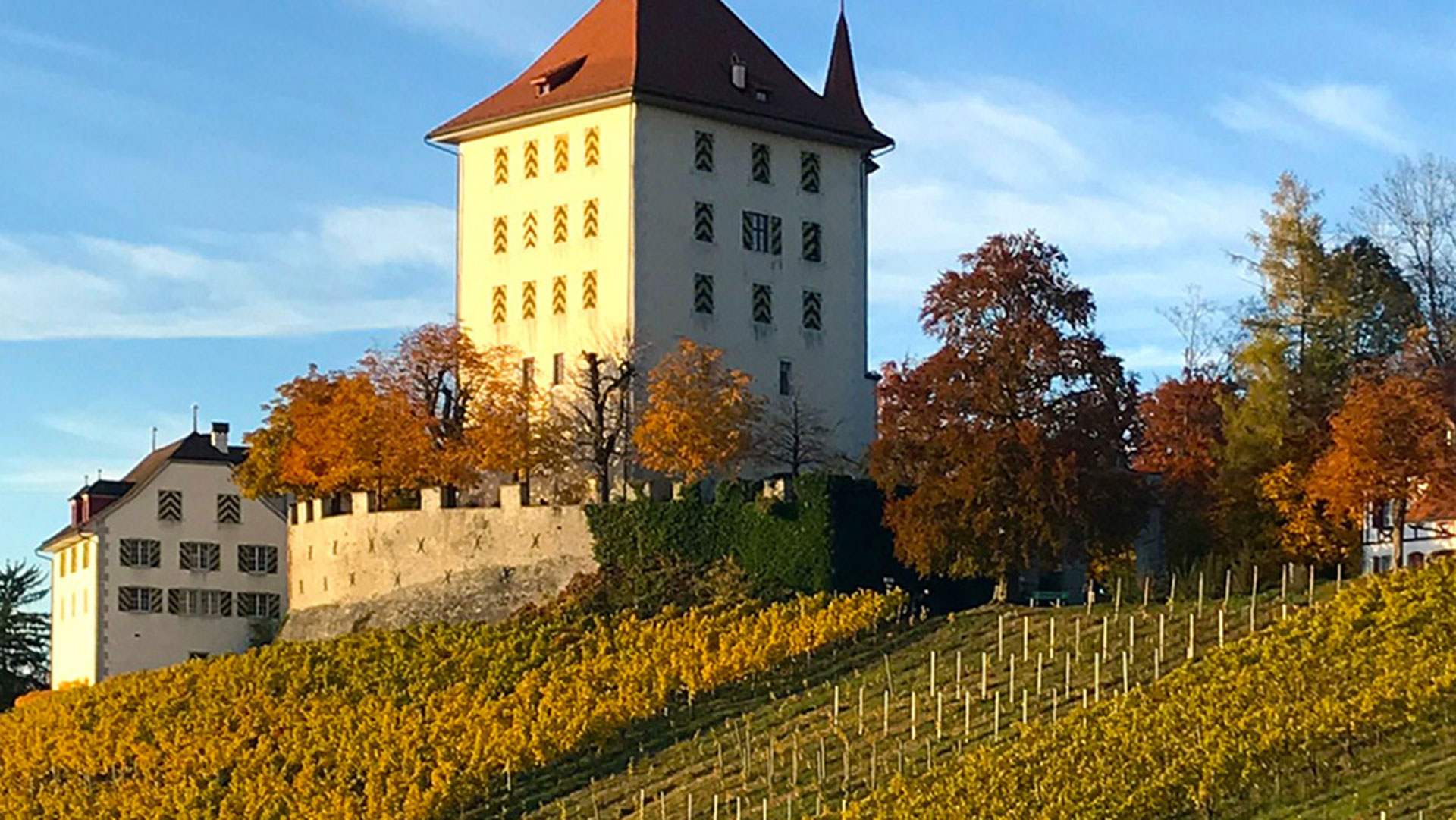Heidegg Castle and the winery – history with a future
The Heidegg winery in Gelfingen is a real landmark in Lucerne’s wine culture. Located right next to the imposing Heidegg Castle, this winery combines historical roots with modern quality standards. Its history dates back to 1185, when knight Heinrich von Heidegg had a castle built here. Around 1300, his descendants planted vines for the first time on the sun-drenched spur of land – the beginning of viticulture, which still characterizes Heidegg Castle and the region today. The hill on which the castle is enthroned was already an important location for viticulture in the Middle Ages and had a lasting influence on wine-growing in the Lucerne region.
The estate developed over the centuries, going through phases of prosperity and crisis, until after the Second World War when Josef Zemp, as its predecessor, laid the foundations for the current rebirth of viticulture. In the 19th century, viticulture came to a temporary standstill due to vine diseases and industrialization, before it was later revived. The challenges posed by vine diseases repeatedly put the winery to the test. In 1951, viticulture was resumed with the founding of Staatskellerei Heidegg, which played an important role for the winery. The decades of tradition and experience of the Heidegger family still characterize the quality of the wines today. The development of viticulture in Heidegg and sustainable cultivation are closely linked to the history of the wine castle. The role of the vine master was always decisive for the further development of the winery. One significant event was the raid by Knight Fleckenstein, who plundered the castle’s wine cellar in 1653. Castle builder Heggli also made a significant contribution to the structural development of the castle and the promotion of viticulture. To this day, the castle is a cultural and historical center of viticulture in Switzerland. The castle hill is considered a formative location for viticulture and wine life in the region. The importance of predecessors, such as Josef Zemp, is unmistakable in the development of the winery today. The Heidegg wine castle is a symbol of the long wine tradition in the canton of Lucerne. The Heidegger family of winegrowers and their passion for viticulture ensure the high quality of the wines, which are closely associated with the Lucerne region and Switzerland.
Philosophy and passion
The Heidegg winery sees itself not only as a producer of wine, but also as the custodian of a cultural asset. Selecting the right grape variety is a central part of the winery’s philosophy, as each grape variety brings unique characteristics and flavor profiles to the wine. Peter Schuler and his team combine traditional methods with modern knowledge to create wines full of character. Their philosophy is based on three pillars: respect for the terroir, the highest quality and passion – you could even call it “wine obsession”, so much lifeblood goes into every bottle here.
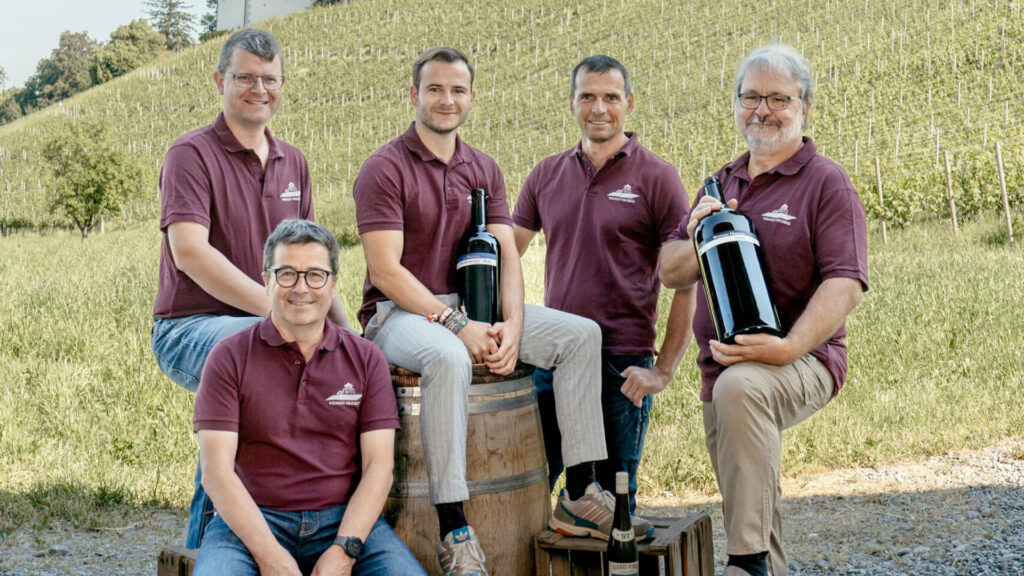
The winery attaches great importance to the diversity of the cultivated varieties in order to offer a broad spectrum of wine styles and aromas. In addition, fungus-resistant grape varieties (fungus resistances) are cultivated, which were created by crossing different varieties such as Riesling, Pinot gris and Chasselas. These fungus-resistant varieties enable sustainable viticulture and bring both biological and taste advantages.
The wines always reflect their origin. The chalky soils at Schloss Heidegg, the mild climate and the carefully tended vines, together with the skillful use of barriques, result in a stylish, elegant line.
Wine selection and specialties
The Heidegg winery offers a wide range of wines. White wines such as the elegant Pinot Gris, which impresses with its fine nutmeg note, harmonious acidity and fresh finish, are just as much the focus here as the classic Pinot Noir, which delights with its velvety structure, berry aromas and wonderful nose. The white wine range also includes Chardonnay and Sauvignon Blanc, which underline the diversity of the grape varieties on offer.
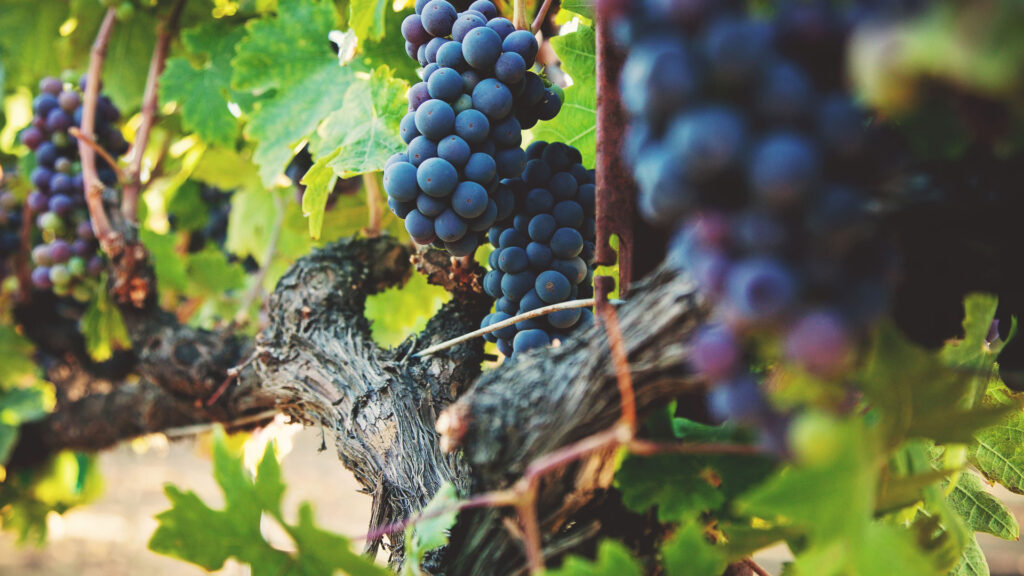
The estate’s white wines are characterized by their freshness, aromatic complexity and careful vinification, which makes them a special pleasure experience.
Wine lovers will also find specialties such as Johanniter or sophisticated cuvées, such as the Cuvée Heidegg AOC Luzern, which is composed of selected grape varieties and shines on the palate with its balance and complexity.
The wines are available in different bottle sizes, including 10cl bottlings for tastings or aperitifs – a charming way to get to know the wine from Heidegg.
Viticulture and vinification
Vinification at the Heidegg winery is based on careful manual work and state-of-the-art cellar technology. Peter Schuler attaches great importance to selective harvesting and gentle ageing of the grapes so that their character is preserved in the best possible way.
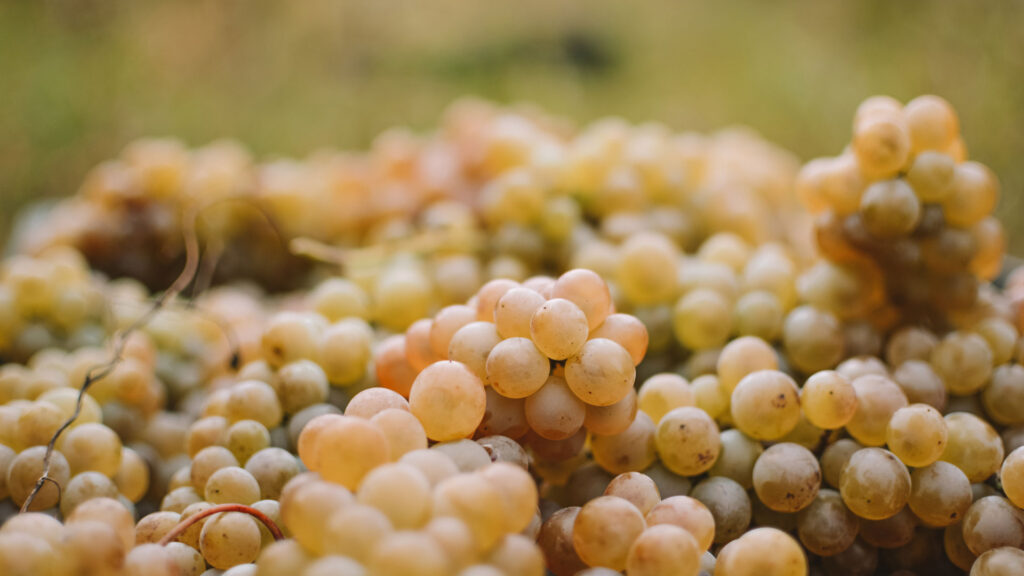
Traditional ageing styles such as barrique ageing complement modern techniques, resulting in wines that are both profound and fresh. Every step of the process is carried out with attention to detail and in-depth expertise to guarantee a harmonious end product.
The vineyard around Heidegg Castle is not only picturesque, but also has a favorable climate. The warm days and cool nights in the Lucerne Seetal ensure slow and even ripening, which is particularly beneficial for the Pinot Gris and Pinot Noir grapes.
Environment and sustainability at the Heidegg winery
Sustainability is far more than just a buzzword at Weingut Heidegg – it is a living tradition and daily responsibility. Peter Schuler and his dedicated team work with passion and sensitivity to ensure that viticulture around Heidegg Castle is carried out in harmony with nature. The rich history of the winery, which goes back to Knight Heinrich von Heidegg and Josef Zemp, is characterized by respect for the environment and the awareness that only healthy vines on healthy soils produce exceptional wines.
Grape varieties such as Pinot Gris, Riesling and Chasselas thrive on the five hectares of Heidegg vineyard under careful cultivation. Each grape is treated with patience and care so that the wines not only impress with their quality, but also with their sustainability. The vines are cultivated according to ecological principles, with a focus on protecting biodiversity and preserving the natural balance – an important contribution to Lucerne viticulture and the future of the winery.
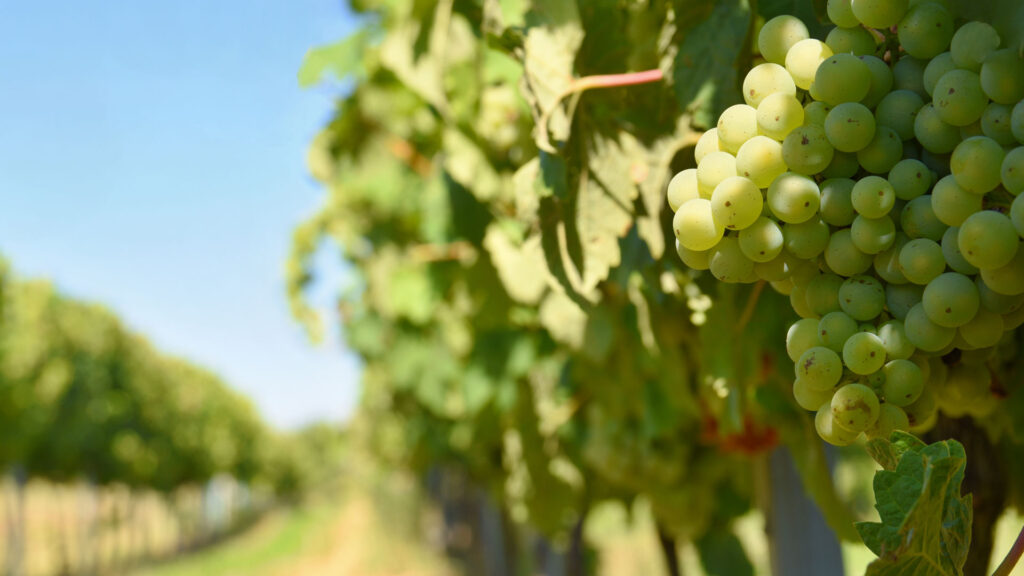
The Heidegg winery also relies on sustainable solutions in the wine cellar: The use of barrique barrels, which are used several times, conserves resources and gives the wines a special touch. Energy consumption is deliberately kept low through the use of renewable energies and modern technology in order to minimize the ecological footprint.
The love of nature and wine is also evident in the small details: Heidegg wines, including the characterful Johanniter and the elegant Pinot Gris, can be purchased in practical 10cl bottles – ideal for an aperitif, as a gift or to discover new varieties. Those who prefer to enjoy the wines at home can order them conveniently online.
The team at Weingut Heidegg combines tradition, innovation and environmental awareness on a daily basis. This results in wines that not only delight the palate, but also contribute to the preservation of the unique cultural landscape around Heidegg Castle. Anyone who visits the winery immediately senses that sustainability is a matter of the heart here – and that every bottle is a piece of Lucerne wine history.
Experience Heidegg Castle
A visit to Heidegg Castle is not only worthwhile because of its historic walls and exciting history. Visitors can immerse themselves in the world of viticulture, taste the character of the wines during tastings and experience the harmonious interplay of nature, history and craftsmanship.
Guided tours through the vineyards and the historic castle garden also bring tradition to life and show the Schuler family’s passion and love for preserving this cultural asset.
Frequently asked questions about the Heidegg Winery
What makes Weingut Heidegg special?
The combination of a long tradition, modern expertise and the historic Heidegg Castle at its heart makes this Lucerne winery unique.
What types of wine does the Heidegg winery produce?
Mainly Pinot Gris, Pinot Noir, Johanniter as well as various cuvées and white wines with an elegant finish.
Who runs the Heidegg winery?
Peter Schuler and his son Lars Schuler run the winery with great passion and obsession for wine.
Can I visit the Heidegg winery?
Yes, there are tastings, guided tours and events at Heidegg Castle and the surrounding vineyards.
What are the special features of Pinot Gris from Weingut Heidegg?
The Pinot Gris impresses with its fresh muscat note, well-integrated acidity and harmonious finish, perfect for aperitifs or as a food companion.

